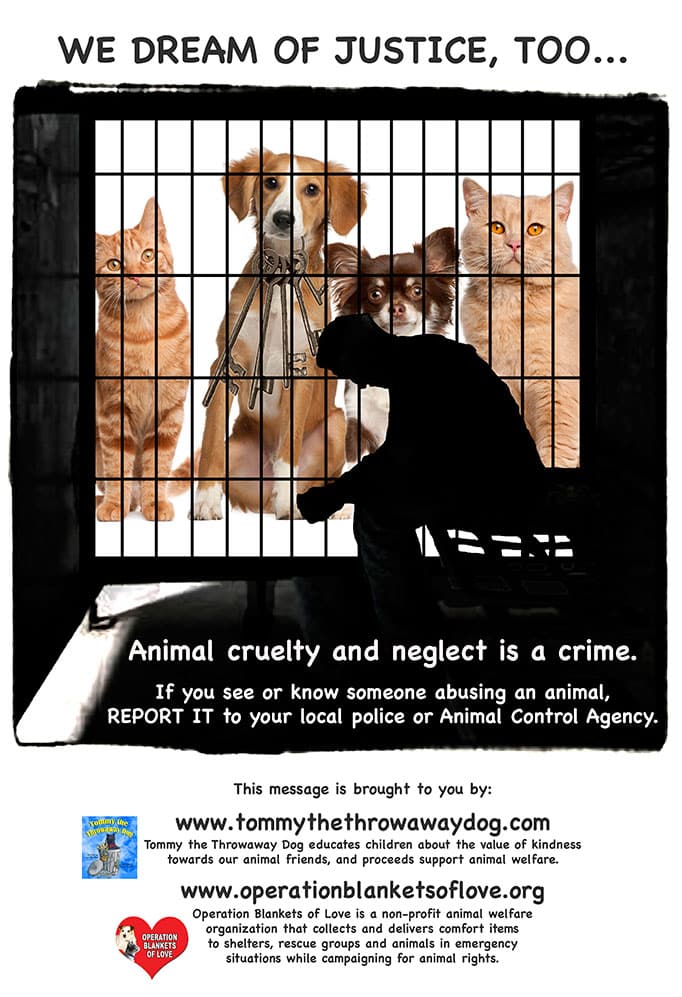In recent years, the poignant issue of animal cruelty has gained heightened awareness, provoking both empathy and outrage within communities across the nation. Many citizens bear witness to instances of neglect, abuse, and malfeasance towards animals in their neighborhoods. These grim occurrences often elicit a visceral reaction; however, moving from indignation to action requires a thoughtful and strategic approach. Standing up against animal cruelty is not merely about responding to a singular incident; it necessitates a commitment to fostering a culturally compassionate environment, encouraging responsible behavior, and increasing legal protections for our vulnerable companions.
To initiate meaningful change, an understanding of the common societal attitudes towards animals is vital. Many people harbor an innate fascination with animals, recognizing their intrinsic value as sentient beings, yet simultaneously, a troubling disconnect exists, allowing for cruelty to manifest in plain sight. This discord can be traced to various complex factors including cultural norms, economic disparity, and insufficient awareness regarding animal rights. Addressing these underlying issues is paramount for effective activism. Community involvement can radically alter this narrative.
One of the first steps towards combating animal cruelty in your community is to educate oneself and those around you. Often, ignorance serves as a breeding ground for indifference. Host workshops or information sessions where local veterinarians and animal behaviorists can discuss the signs of distress or neglect. Providing literature that elucidates the responsibilities of pet ownership can be immensely beneficial. Many pet owners may not realize that animals require more than food and shelter; they need social interaction, exercise, and mental stimulation. By creating a culture rooted in awareness, we can start to dismantle the wall of apathy.
Further, community involvement plays a pivotal role in amplifying the message against cruelty. Form or join local advocacy groups that focus expressly on animal welfare. These organizations can organize community outreach initiatives, including clean-up events at local parks or shelters, creating mutual benefit for both animals and humans. Collaboration is key; consider partnering with schools, local businesses, and healthcare providers to sponsor activities that promote responsible animal ownership and humane treatment. Mutual participation fosters a sense of shared responsibility, ultimately leading to more robust community standards regarding animal care.
Legal protections are essential to ensuring the safety of animals, yet many regions lack stringent regulations. Become familiar with local ordinances related to animal welfare. Are the existing laws sufficient to protect animals from cruelty? Engage with your local government representatives to advocate for stronger legislative measures. Utilizing social media can amplify your voice and rally those who share your convictions. Transitioning from awareness to action can catalyze positive legal changes. Petitions and letter-writing campaigns targeted toward legislators can illustrate the collective concern for animal welfare in your community.
Engaging with local shelters and rescue organizations also serves dual purposes: reducing the suffering of animals in need and fostering a communal sense of empathy. By volunteering at local shelters, individuals can directly contribute to the welfare of animals and learn about the intricacies of animal care. Additionally, these organizations often host adoption events, which can further promote a compassionate approach to animal ownership. Foster networks, where individuals or families care for animals temporarily, can significantly alleviate overcrowded shelters and provide animals with a stable environment while seeking forever homes.
Community events can buoy the spirits of both people and animals. Hosting fundraisers that benefit local animal shelters not only raises money but also increases public awareness of the plight animals face. Create a platform for storytelling—sharing rescue stories illuminates the tangible impact of collective action. These narratives can evoke emotional responses, making the urgent need for advocacy resonate profoundly in the hearts of listeners. By fostering an ongoing dialogue about animal welfare, communities can become more proactive rather than reactive to instances of cruelty.
Equally, a direct approach in addressing suspected animal cruelty cases can make a significant difference. Individuals who witness abuse should feel empowered to report their concerns to local authorities or humane societies. Providing a clear protocol for reporting suspected cases can often deter potential offenders, as awareness of community vigilance becomes more pronounced. Be wary, however, of approaching the situation directly; ensuring your own safety and that of the animal should always be a priority. Instead, maintain records of incidents such as dates, locations, and descriptions, which can provide crucial evidence when reporting to authorities.
Lastly, consider exploring alternative and holistic approaches to animal welfare. Engage with animal behaviorists who can offer insights into training and rehabilitation for both animals and owners. Many instances of neglect or abuse stem from misunderstandings about animal behavior. By promoting training, not only can you address behavioral issues, but you can also empower families to form healthy relationships with their pets. Moreover, advocating for spaying and neutering can help control the pet population, mitigating the strains on local shelters and reducing the likelihood of abandonment.
In conclusion, standing up against animal cruelty is a multifaceted endeavor requiring both education and action. From cultivating awareness in your community to advocating for stronger laws and supporting local shelters, every action contributes to a larger movement. By fostering understanding, compassion, and accountability, we can enhance the quality of life for animals and ensure that cruelty has no place in our communities. Together, we possess the power to create significant and lasting change, embodying the responsibility we hold towards our animal counterparts.








